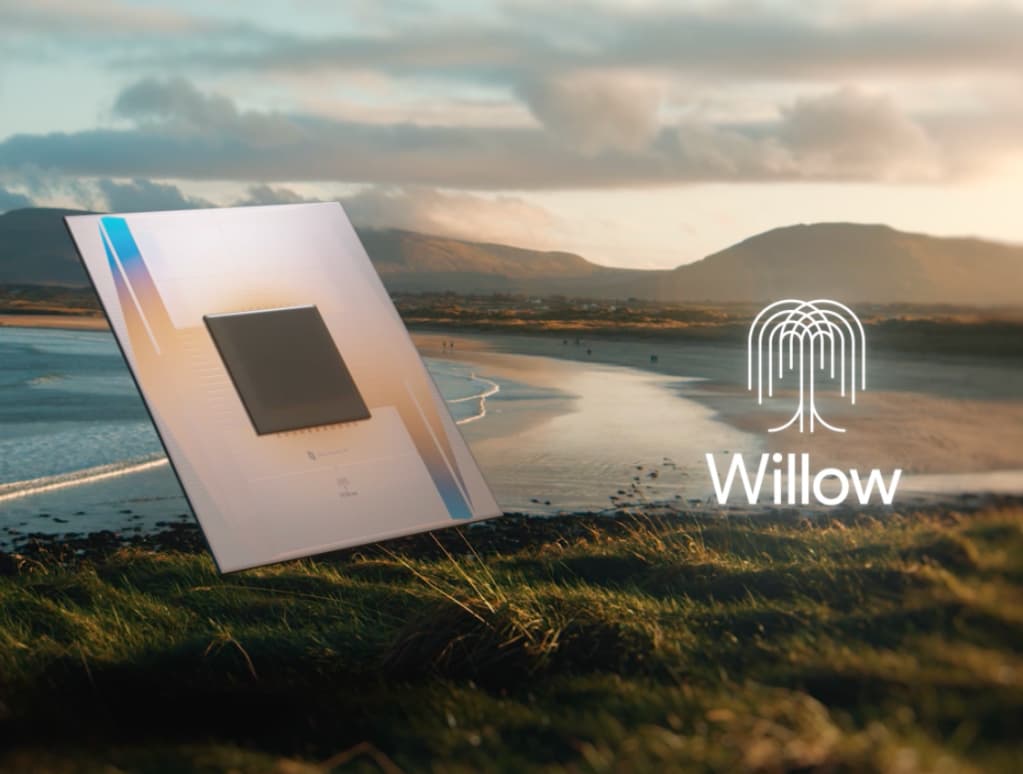Google's Willow Chip PR: A Tale of Market Gains and Community Backlash

Google's recent announcement of their Willow quantum chip sparked both market enthusiasm and significant controversy within the scientific community. While the company's stock surged, adding approximately $200 billion to its market value, the technical claims and marketing approach have drawn sharp criticism from quantum computing experts.
The night after the Willow chip announcement, while we were at Q2B this year, a CEO of another company asked me - "do you think they did this on purpose?" I responded "100%." Much of the terminology used is similar to the 2019 quantum supremacy announcement. However, there were some additional components of this announcement that riled up the community more than the 2019 announcement did.
The Announcement's Bold Claims
Google's announcement centered on three major claims with their Willow chip:
- The ability to reduce errors exponentially as they scale up qubits, which they claimed "cracks a key challenge in quantum error correction"
- A benchmark computation that would allegedly take classical supercomputers "10 septillion years" to complete
- The bold assertion that their quantum computation results "lend credence to the notion that quantum computation occurs in many parallel universes" - effectively claiming experimental evidence for the multiverse theory
Market Response and Business Impact
The market responded enthusiastically to these claims, with Google's stock seeing a dramatic surge that added roughly $200 billion to its market capitalization. This response reflects the growing investor interest in quantum computing and suggests that Wall Street views Google as a serious contender in the quantum race.
The Scientific Community's Response
However, the quantum computing community's reaction has been markedly different. Several concerns have emerged:
The announcement's boldest assertion combined two controversial elements: the "10 septillion years" quantum advantage claim and its direct connection to multiverse theory. Google didn't just present this as a technical benchmark - they explicitly claimed this computation time "lends credence to the notion that quantum computation occurs in many parallel universes."
The multiverse reference sparked widespread social media engagement, with memes spreading across platforms like X (formerly Twitter), Reddit, and TikTok. Many quantum computing experts argue that comparing quantum operations to classical supercomputer timelines spanning multiple universe lifetimes is already problematic enough. But linking this directly to the many-worlds interpretation of quantum mechanics - a highly debated philosophical interpretation - in a technical announcement has been seen as crossing a line between scientific communication and speculative physics.

Marketing vs. Scientific Communication
The announcement's viral success, while impressive from a PR perspective, has been heavily criticized for prioritizing attention-grabbing claims over precise scientific communication. The multiverse reference, in particular, has become a symbol of what many see as the growing tension between scientific accuracy and market-driven tech announcements.
In some ways, this has also overshadowed the important technical achievements that Google has made in quantum computing. The Willow chip is a great step forward in quantum computing, and the company's progress in error correction is a testament to their commitment to the field. However, the context set by the announcement has been seen as a distraction from the company's actual achievements.
While Google may be able to get away with it, smaller companies need to be more careful in the future while also being able to address these press releases with outside stakeholders. This means that any miscommunication can have a much larger impact on a company's credibility and that can lead to issues with funding, partnerships, and recruiting.
Learning from the Past: Microsoft's Evolution
This incident draws interesting parallels to Microsoft's journey in quantum computing communications. After facing similar criticism with their early fermionic qubit announcements, Microsoft has notably transformed their approach to quantum computing PR.
Microsoft learned the hard way that in the relatively small quantum computing community, scientific credibility is paramount. Their early announcements, which included results without accompanying peer-reviewed papers, faced significant pushback. However, they've since refined their communication strategy to prioritize scientific rigor over market excitement, demonstrating that maintaining the trust of the scientific community is crucial for long-term success in quantum computing.
The contrast between Microsoft's evolved approach and Google's recent announcement highlights a crucial lesson: while market validation is important, the quantum computing field remains fundamentally a scientific endeavor. The community's voice, though smaller than the general public's, carries significant weight in determining a company's long-term credibility and success in the field.
Key Takeaways
- Market success doesn't always align with scientific reception
- Technical achievements need careful, precise communication
- The quantum computing field may need to develop better standards for announcing and validating progress. This has also been seen with battles on benchmarks. Now that the general public understands qubit count isn't the end all for quantum computing, qubit fidelities are starting to dominate the news cycles